Whitesmann’s Commentary on The Essential Commodities Act, 1955 (Act No. 10 of 1955) by YP Bhagat, Kumar Keshav & Ranjeeta Singh Edition 2022
Whitesmann’s Commentary on The Essential Commodities Act, 1955 (Act No. 10 of 1955) by YP Bhagat, Kumar Keshav & Ranjeeta Singh Edition 2022
Description
Whitesmann’s Commentary on The Essential Commodities Act, 1955 (Act No. 10 of 1955) by YP Bhagat, Kumar Keshav & Ranjeeta Singh Edition 2022
As public interest required that Centre should continue to have even after the 26th January, 1955, the
same legislative powers as it had under Article 369 of the Constitution, a Bill providing for the
necessary amendment of Entry 33 of List 3 in the Seventh Schedule to the Constitution was passed by
both Houses of Parliament in September last year. This amendment has now become law, having been
ratified by the requisite number of States.
The Constitution (Third Amendment) Act, however, had not become law when the Essential
Supplies (Temporary Powers) Act, 1946 expired, and therefor an Ordinance was promulgated to take
effect on the 26th day of January, 1955, which provided for the regulation of trade and commerce in, and
the production, supply and distribution of commodities which fell within the first category referred to in
the preceding paragraph. Under Entry 42 of the Union List, Parliament has power to regulate inter-State
trade and commerce in all commodities and the Ordinance also provided for such regulation in section
4, thereof but the application of that section was limited in the first instance to wheat, raw cotton and
sugar-cane.
Pending the passing of a Central law providing for control in respect of all essential commodities
now falling within Entry 33 of the Concurrent List, certain State Governments have promulgated Ordinance or
taken legal action open to them for continuing controls in respect of such commodities as could not be
included in the Central Ordinance.
The present Bill seeks to replace the Central Ordinance and at the same time includes within the
definition of “essential commodities” those commodities which had to be left out by reason of lack of
legislative power. To a very large extent, the Bill follows the provisions contained in the Essential Supplies
(Temporary Powers) Act, 1946, but the penalty clause has been simplified and a few other provisions
have been omitted as unnecessary.
ACT 10 OF 1955
The Essential Commodities Bill having been passed by both the Houses of Parliament received the
assent of the President on 1st April, 1955. It came on the Statute Book as THE ESSENTIAL
COMMODITIES ACT, 1955 (10 of 1955).
LIST OF AMENDING ACTS AND ADAPTATION OF LAWS ORDER
1. The Adaptation of Laws (No. 3) Order, 1956.
2. The Essential Commodities (Amendment) Act, 1957 (13 of 1957).
3. The Essential Commodities (Second Amendment) Act, 1957 (28 of 1957)
Additional information
| Weight | 1.7 kg |
|---|---|
| Authors | |
| Publisher | |
| ISBN | |
| Binding | |
| Edition | |
| Language |

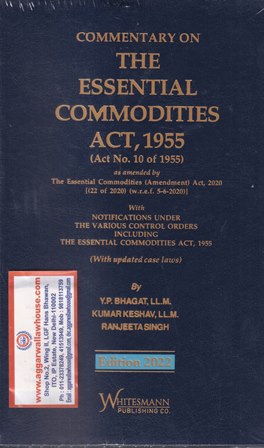
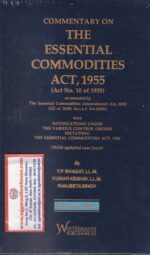
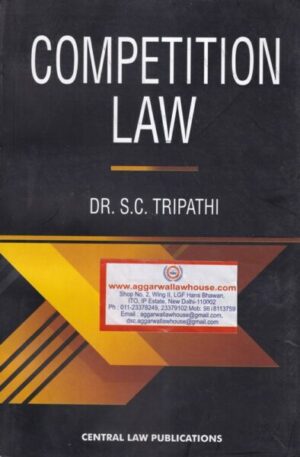

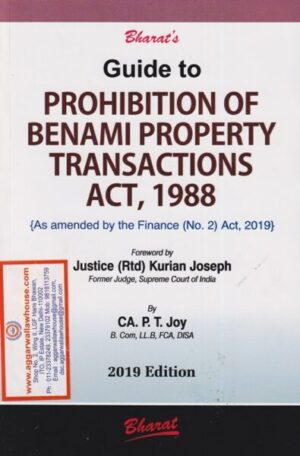
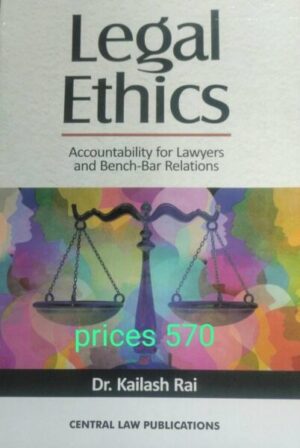


Rating & Review
There are no reviews yet.